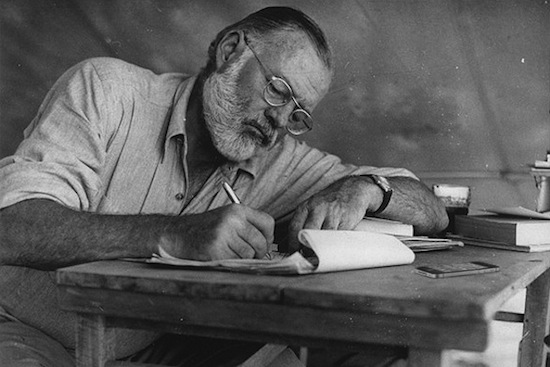
Social media, at its unforgiving core, is a never-ending obligation to update streams of pointless information about your life, which no one besides your mother, a few friends or perhaps a demented stalker really cares about. Yes, if you're famous, folks will be fascinated by your choice of taco at the lunch truck -- but you're probably not famous, at least not in the way Ashton Kutcher is. The fact that your chipotle is backpedaling up your gullet right now isn't of much global concern. While your meticulously detailed Twitter updates might be enjoyable to write, they can often come at the cost of your real-world experiences.
Digital Lunch
Imagine lunch out with friends. Instead of enjoying your delightful food and delving into meaningful conversation, you snap dozens of photos of your artfully displayed salmon and kale instead. But wait, here comes dessert -- now you really go bananas. You take tons of shots and inundate cyberspace with images, posts and tags. Someone says something to you at the table, which you miss since you're busy checking your phone, gleefully waiting for the inevitable onslaught of positive social affirmation that's sure to come -- because how could anyone resist commenting on such a colossal bowl of ice cream? Pleasure centers of the brain, get ready for some lovely dopamine.
Never mind that your dear friend, who you've ignored for the better part of the meal, is moving overseas. You might not see her for several years, but at least you'll always have those ice cream and salmon photos you posted online, and the 42 "likes" garnered as a result. Time well spent, I'd say.
Hemingway Tweets
Great ideas often need to simmer before they're ready to come out. These days, anyone working in the media (guilty) needs to know how to leverage various digital platforms in order to promote their brand and content. That's just how the game works now. Even so, I sometimes wonder how a brooding literary giant like Ernest Hemingway would have handled social media. Would this man, who tunneled through his soul for truth and exacting prose, have jumped into the fray and swam in the writhing currents of Twitter updates?
In his book, A Moveable Feast, Hemingway tenderly writes about reassuring F. Scott Fitzgerald about the size of his male member. While the two men are at lunch, Scott confides that his wife Zelda belittles him because of his diminutive size. Ernest listens to his friend's concerns, and then suggests they meet in the office (the men's room). After a quick inspection, he tells Fitzgerald that he has nothing to worry about. He's built just fine -- it's all a matter of angle and foreshortening. The vignette is told with humor and warmth, particularly considering the overly macho nature of the author telling it. Now imagine, after comforting his friend, Hemingway had immediately tweeted about it.
Just inspected Fitzgerald's junk. Not bad. He certainly measures up to the task. #maleinsecurities #notmywilly
While a Twitter post might have created a comedic (not for Scott) social buzz, it would have limited Hemingway's ability to retell the story at a later date, with a bit more compassion. Of course, one could argue that Ernest shouldn't have written about his friend's penis at all, but an instant tweet would have destroyed any chance of approaching the subject in a more skillful manner.
The content we share is a matter of choice, yet many of us share too much, too often. The mystique and wonder of you evaporates the moment you upload images of your latest colonoscopy, right next to the photos of the fish taco you had after the procedure. Not even the NSA wants to know about that. By constantly oversharing, we run the risk of simply becoming a collection of reported facts and opinions, rather than flesh and blood human beings worth getting to know.
An Author's Heartache
In his novel, A Farewell to Arms, Hemingway fictionalized his experiences as an ambulance driver in the First World War. When his protagonist is injured, he convalesces in an Italian hospital, where he falls for a nurse. In reality, the American nurse Hemingway fell in love with left him for an Italian officer. From these private experiences, he crafted an outstanding piece of literature. How would the story have differed if he'd tweeted every detail of that turbulent affair as it happened, like some modern-day celebrity?
Nurse Agnes dumped me. Broken-hearted. Hope that cow dies. Getting hammered now. #drunkentweets #evilnurses #futurenovel
The dark romance, and the time needed to imbue and create an artistic interpretation of that painful event, would have been lost -- not to mention displaying Hemingway's excessive use of hashtags when he's drunk too much.
Just because we can share our thoughts in the time it takes to type a message and press send, doesn't mean we always have to. It's important to know how to share wisely, and hold back on occasion despite our burning desire to reveal all, because at the end of the day, we're more than the sum of our tweets.
